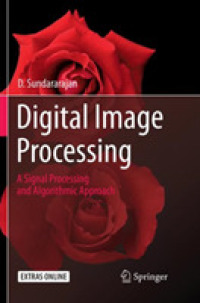- ホーム
- > 洋書
- > 英文書
- > Computer / General
基本説明
This text covers the two key theoretical computer science issues: problems for which no algorithm exists and thus they cannot be computed; and problems for which no algorithm can be guaranteed to answer in a reasonable amount of time, for example, within a reasonable century.
Full Description
Limits of Computation: An Introduction to the Undecidable and the Intractable offers a gentle introduction to the theory of computational complexity. It explains the difficulties of computation, addressing problems that have no algorithm at all and problems that cannot be solved efficiently.
The book enables readers to understand:
What does it mean for a problem to be unsolvable or to be NP-complete?
What is meant by a computation and what is a general model of a computer?
What does it mean for an algorithm to exist and what kinds of problems have no algorithm?
What problems have algorithms but the algorithm may take centuries to finish?
Developed from the authors' course on computational complexity theory, the text is suitable for advanced undergraduate and beginning graduate students without a strong background in theoretical computer science. Each chapter presents the fundamentals, examples, complete proofs of theorems, and a wide range of exercises.
Contents
Introduction. Set Theory. Languages: Alphabets, Strings, and Languages. Algorithms. Turing Machines. Turing-Completeness. Undecidability. Undecidability and Reducibility. Classes NP and NP-Complete. More NP-Complete Problems. Other Interesting Questions and Classes. Bibliography. Index.








